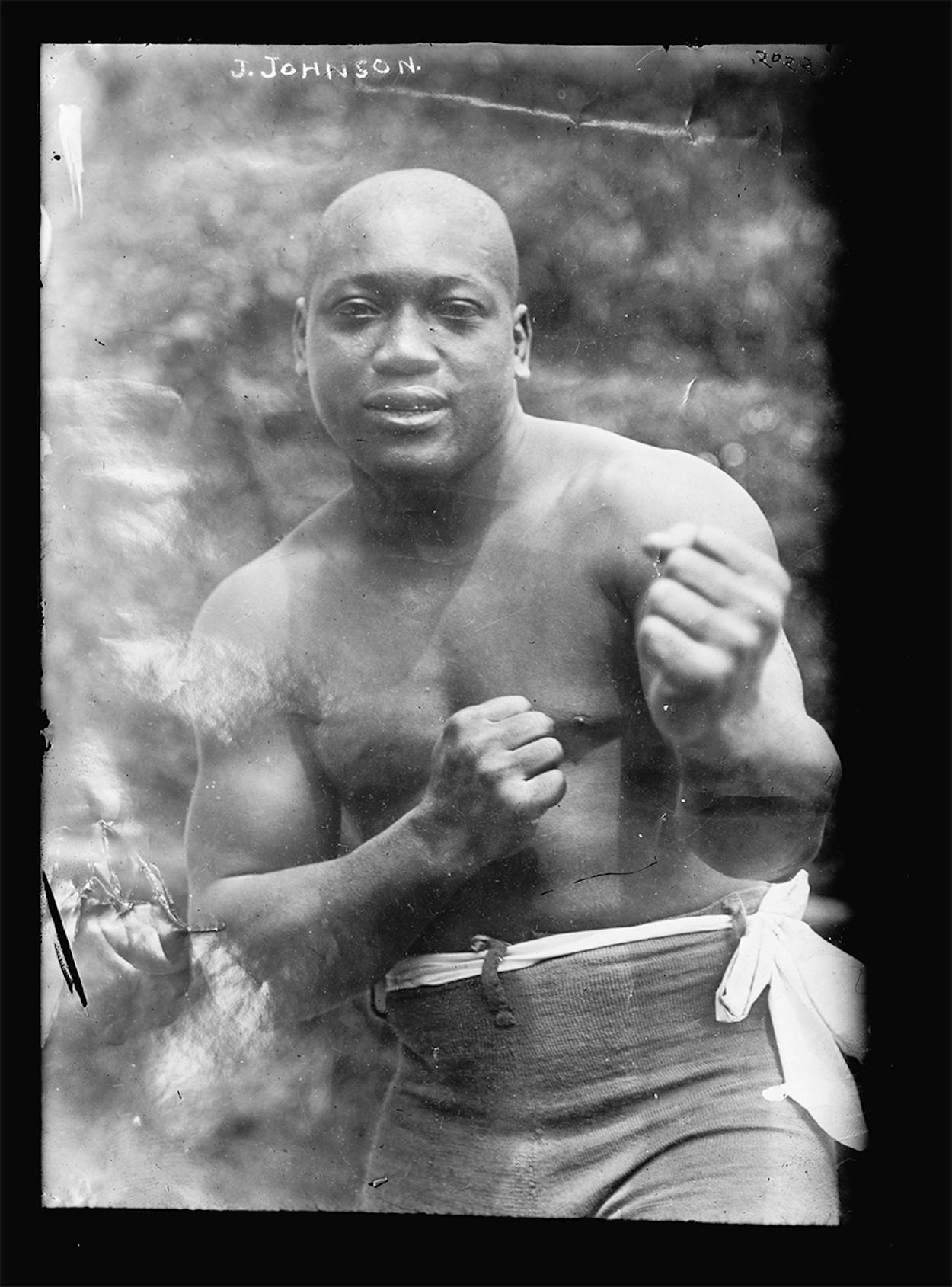President Donald Trump pardoned former champion boxer and Galveston native Jack Johnson on Thursday. It was the culmination of a decades-long push to correct a racially motivated conviction that tarnished Johnson’s legacy and forced him to live in exile before serving time in prison. “We have done something today that was very important, because we righted a wrong,” Trump said Thursday, according to CNN. “Jack Johnson was not treated fairly, and we have corrected that, and I’m very honored to have done it.”
Johnson was arguably the best boxer in the world in the early 1900s and remains one of the greatest of all time, but for most of his career he was denied a title shot because white men wouldn’t fight him. In 1908, champion Tommy Burns finally agreed to a match. Johnson won and became the first black man to win the heavyweight title, setting the stage for his 1910 fight against former champion Jim Jeffries. The fight was branded as a chance to restore “white supremacy,” and Jeffries was anointed as “The Great White Hope” coming into the match. “I should step into the ring again and demonstrate that a white man is king of them all,” Jeffries reportedly said. It didn’t go well for Jeffries, though—Johnson pummeled him, winning in a fifteenth-round TKO. The result prompted racist violence across the country as mobs of white people attacked African-Americans who were celebrating the victory. In Houston, for example, a black man’s throat was cut by a white man because he “announced too vociferously his appreciation of Jack Johnson’s victory.”
Not only did Johnson roil racists simply because of his prowess, but he also refused to play the part of the humble, apologetically talented black boxer that might have better endeared him (to an extent) to whites. Instead, Johnson spoke his mind, frequently taunting opponents and fans. He liked fancy cars and clothes, and he liked white women too.
After his title-bout win over Jeffries, Galveston had planned to honor Johnson with a homecoming parade, but the party was cancelled after word spread that Johnson would be attending the festivities with a white woman. Around the same time, the U.S. Department of Justice opened an investigation into Johnson for allegedly violating the recently signed Mann Act, which made it a felony to transport across state lines “any woman or girls for the purpose of prostitution or debauchery, or for any other immoral purpose”—a vaguely worded law that made it possible to prosecute black men for interracial relationships.
The mother of a white woman Johnson was in a relationship with told police that Johnson had kidnapped her. The relationship was consensual (they would eventually get married) and Johnson’s girlfriend did not cooperate with authorities, so the case was dropped. But investigators soon found a former white girlfriend of Johnson’s who was willing to cooperate, and in 1913 he was convicted by an all-white jury and sentenced to a year in prison. Johnson fled the country but continued to fight, keeping his title until he was knocked out in the 26th round by Jess Willard in Cuba in 1915. He turned himself in to U.S. authorities at the Mexican border in 1920, served nearly a year in prison in Leavenworth, Kansas, never again fought for the world title, and died in a car accident, in 1946.
In 1970 James Earl Jones played Johnson in a movie about Johnson’s fight with Jeffries, and the next year jazz musician Miles Davis named an album after the boxer. But for most of the twentieth century, Johnson’s legacy was severely unappreciated. That began to change when documentarian Ken Burns released a film about Johnson called Unforgivable Blackness, in 2005. It told the story of Johnson’s rise and ultimate fall, and exposed the intense racism he faced, calling into question the legitimacy of his criminal conviction. The film prompted calls for a presidential pardon—Burns, actor Sylvester Stallone, and Senator John McCain were among the celebrities and politicians who advocated most strongly for a pardon.
- More About:
- Sports






